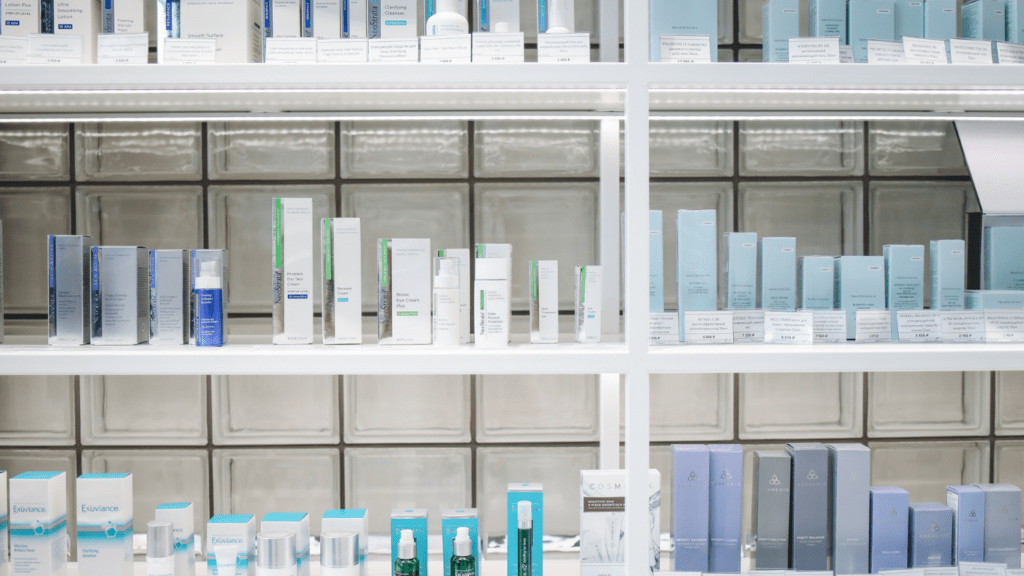Overview of Recent Anti-Aging Product Breakthroughs
Recent anti-aging product breakthroughs have significantly improved the skincare industry’s capabilities. Researchers are now using advanced peptides, like Matrixyl, known for boosting collagen production and reducing wrinkles. These peptides stimulate the skin’s natural repair processes, offering visible improvements in elasticity and firmness.
Innovative ingredients like Bakuchiol are gaining popularity. Found in seeds of the Psoralea corylifolia plant, Bakuchiol offers similar benefits to retinol without causing irritation, making it suitable for sensitive skin. It tackles fine lines, uneven skin tone, and texture.
Nanotechnology has revolutionized ingredient delivery. Nano-sized particles improve active ingredient penetration, targeting deeper skin layers where aging signs manifest. This technology ensures maximum efficacy of ingredients like hyaluronic acid and vitamin C.
Gene therapy represents a futuristic anti-aging approach. Techniques like CRISPR are being explored to correct genetic aging markers. While still in experimental stages, gene therapy holds promise for personalized skincare solutions that address aging at a genetic level.
AI-driven skincare is transforming product development. AI analyzes skin conditions and customizes formulations to individual needs. Brands use AI to predict skin responses to various ingredients, ensuring optimal product efficacy for diverse skin types.
These advancements reflect a new era in skincare, merging science and technology to combat aging more effectively than ever before.
Scientific Innovations Behind New Anti-Aging Products
Breakthroughs in anti-aging products come from advancing scientific research. Biotechnology and peptide research lead the way in creating effective solutions.
Biotechnology in Skin Care
Biotechnology harnesses living organisms to develop advanced anti-aging products. Researchers use recombinant DNA technology to produce growth factors.
Epidermal Growth Factor (EGF), for example, stimulates cell growth and improves skin texture. Companies like BioEffect use barley seeds to synthesize EGF, creating serums with high efficacy.
Scientists also employ biofermentation to increase ingredient potency. Fermented yeast extract, a prominent example, enhances skin elasticity and hydration.
Advanced biotechnology methods ensure that active ingredients penetrate deeper skin layers, providing significant anti-aging benefits.
Advances in Peptide Research
Peptides play a crucial role in modern anti-aging products. New peptides target specific skin concerns with precision. Matrixyl, a famous peptide, boosts collagen production and reduces wrinkles.
Recent studies show a 68% reduction in wrinkle depth over six months.
Argireline, another peptide, mimics Botox effects by inhibiting muscle contractions, leading to smoother skin. Syn-Ake, inspired by snake venom, relaxes facial muscles, reducing expression lines.
Advanced peptide synthesis methods allow for the creation of highly stable and effective peptides, ensuring consistent results.
The combination of these innovative approaches ensures that anti-aging products are not only effective but also backed by solid scientific research.
Key Ingredients in New Anti-Aging Products
Breakthroughs in anti-aging products often feature key ingredients backed by scientific research. Two prominent categories include antioxidants and compounds like:
- hyaluronic acid
- retinoids
Antioxidants and Their Effects
Antioxidants play a critical role in combating skin aging. These compounds neutralize free radicals, which cause cellular damage and accelerate aging.
Vitamin C, for example, boosts collagen production and reduces fine lines. Resveratrol, derived from grapes, protects the skin from UV damage and environmental stress. Another powerful antioxidant, Vitamin E, reduces inflammation and supports skin repair.
| Antioxidant | Primary Source | Key Benefits |
|---|---|---|
| Vitamin C | Citrus fruits | Collagen production, fine line reduction |
| Resveratrol | Grapes | UV protection, reduces environmental stress |
| Vitamin E | Nuts, seeds | Anti-inflammatory, skin repair |
Role of Hyaluronic Acid and Retinoids
Hyaluronic acid (HA) and retinoids are essential in modern anti-aging formulations. HA, a naturally occurring molecule, holds up to 1,000 times its weight in water, providing intense hydration.
This plumps the skin, reducing the appearance of fine lines and improving texture. Retinoids, derivatives of Vitamin A, accelerate cell turnover and boost collagen production.
Retinol, a popular retinoid, minimizes wrinkles and evens out skin tone. Tretinoin, a prescription retinoid, addresses severe photoaging and hyperpigmentation.
| Ingredient | Function | Key Benefits |
|---|---|---|
| Hyaluronic Acid | Hydration | Plumps skin, reduces fine lines, improves texture |
| Retinol | Cell turnover, collagen boost | Minimizes wrinkles, evens skin tone |
| Tretinoin | Severe photoaging treatment | Reduces hyperpigmentation, severe wrinkles |
These key ingredients, backed by research, offer effective anti-aging solutions.
Evaluating the Effectiveness of New Anti-Aging Products

Assessing the success of anti-aging products involves both scientific validation and user experiences. Here’s how new formulations stack up.
Clinical Trials and Results
Clinical trials provide empirical data on a product’s efficacy. Manufacturers conduct these studies, testing on diverse skin types and ages.
For instance, a 12-week study on a serum containing Epidermal Growth Factor (EGF) showed significant improvement in skin elasticity and overall hydration levels.
Retinoids have been proven to boost collagen production and cell turnover, reducing fine lines by up to 45% in controlled conditions.
Hyaluronic acid formulations often show increased skin hydration by 20-30% within a few weeks. These results offer strong evidence of the product’s performance.
Consumer Reviews and Feedback
User reviews provide real-world insights into a product’s effectiveness.
Many consumers report visible improvements in skin texture and elasticity after consistent use of peptides such as Matrixyl and Argireline.
Matrixyl is noted for its capacity to reduce wrinkle depth by about 15-30% over several months. Users often praise antioxidants like Vitamin C and Resveratrol for enhancing skin radiance and reducing age spots.
Additionally, hyaluronic acid products frequently receive positive feedback for their immediate plumping and hydrating effects on the skin. Such reviews reinforce clinical findings, providing a comprehensive evaluation.


 Bradley Frankirly is a distinguished article writer at Body Care And Matter, bringing a unique perspective to the world of health and wellness journalism. With a keen eye for detail and a passion for storytelling, Bradley crafts articles that resonate deeply with readers, offering both informative content and a relatable narrative.
Bradley Frankirly is a distinguished article writer at Body Care And Matter, bringing a unique perspective to the world of health and wellness journalism. With a keen eye for detail and a passion for storytelling, Bradley crafts articles that resonate deeply with readers, offering both informative content and a relatable narrative.

